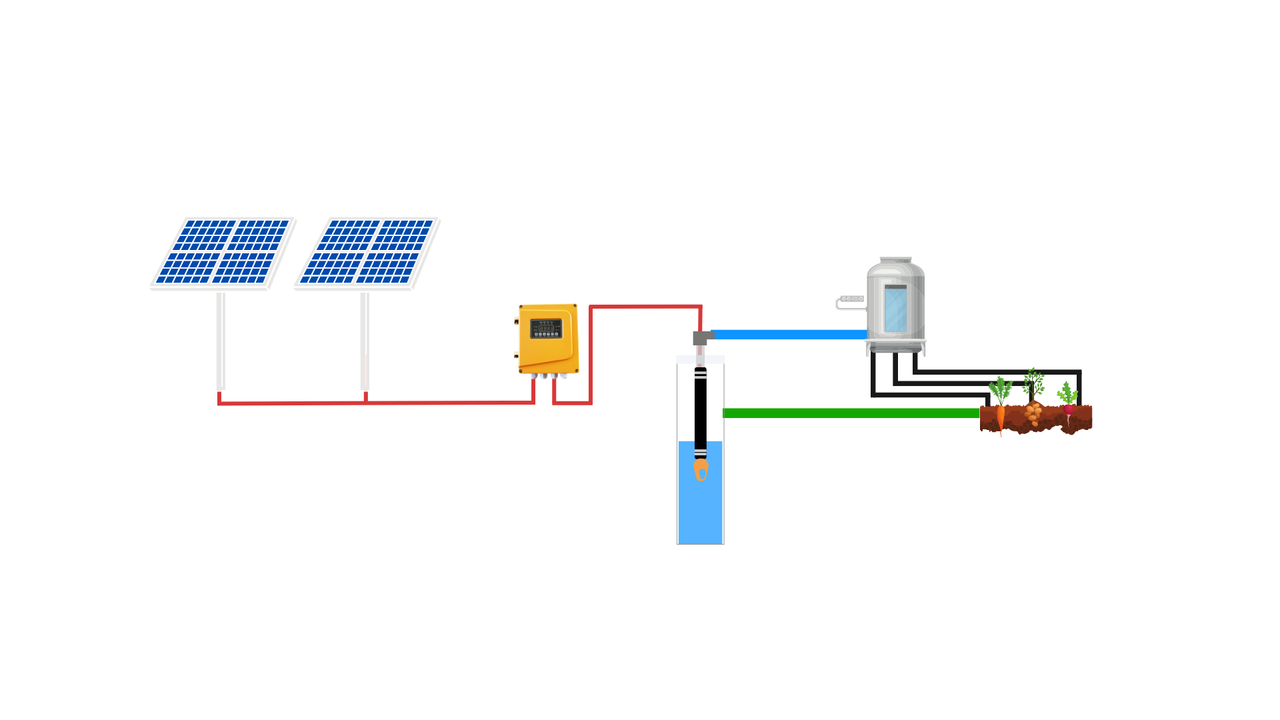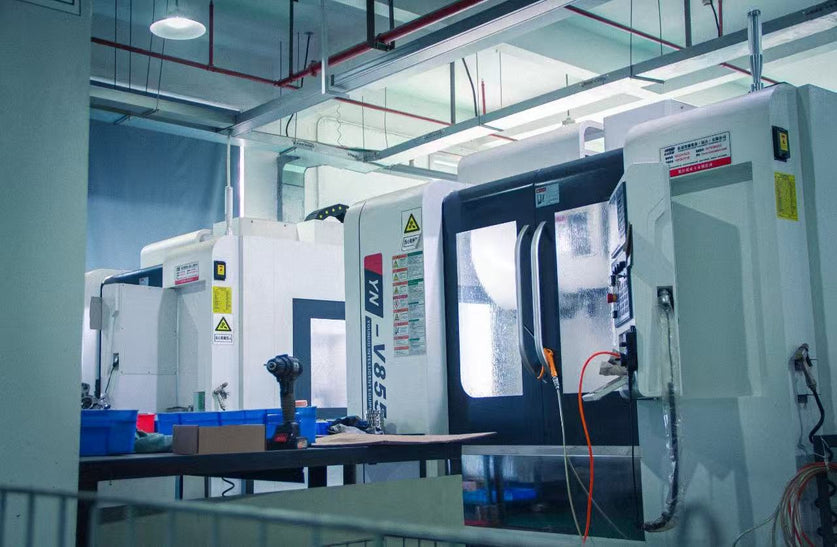
Green energy water lifting offerings offers an eco-minded economical approach to irrigation. Through harnessing daylight energy these setups pump water from various sources, such as rivers, to fulfill the needs of homesteads. Photovoltaic pumping units remain efficient and utilize minimal maintenance, making them suitable for grid-connected and remote environments.
Solar water pumping systems comprise of PV modules generating usable electricity, which then powers a pump. Numerous types of pumps are available, such as centrifugal pumps, submersible pumps, and piston pumps, each suited to unique water lifting requirements.
- PV pumping solutions lessen fossil fuel use and promote cleaner ecosystems.
- Additionally, these systems deliver a dependable water provision where grid power is scarce.
- Consequently, solar water pumping is growing in adoption worldwide as a sustainable water-management option.
Solar Pond Pumps
Looking for a reliable and eco-friendly way to supply your fields? These pond pump systems harness sunlight to move water for gardens efficiently. They provide a greener irrigation choice, cutting fossil fuel use and shrinking environmental footprint.
With minimal maintenance required and long lifespan, solar pond pumps provide a economical way to guarantee consistent water access for your farming operations. Embrace the power of renewable energy and make a difference with solar pond pumps.
Photovoltaic submersible pumps deliver steady deep well access where grid power is limited.
Solar-Powered Submersible Pumps
Where grid access is constrained, dependable water sources are vital for farming and daily life. Immersion pumps, traditionally fueled by electricity from the grid, can be costly to operate and maintain. Recent solar innovations now enable direct photovoltaic operation of submersible pumps, offering a greener option. Such cutting-edge setups use PV arrays to energize pumps that lift water from wells. The approach reduces fossil fuel dependency and grid reliance, presenting a cost-savvy way to access safe water.
Harnessing Sunlight for Water Access
Solar energy offers major potential especially for supplying vital water resources. Solar well pump installations represent a transformative option merging green power with dependable irrigation and household supply. The systems convert sunlight to operate strong pumps that lift water from deep wells, ensuring steady supply in isolated locations.
Additionally, solar well pump systems offer numerous features including reduced energy costs, lower carbon footprint, and increased energy independence.|These well pump systems deliver reduced operating expenses, decreased emissions, and greater autonomy.|Among benefits are lower energy bills, reduced carbon output, and strengthened energy sovereignty.} By harnessing the sun's inexhaustible power, these systems contribute to a brighter future, ensuring access to clean water while safeguarding our planet for generations to come.
- Imagine a world where every community, regardless of its location, has access to reliable and sustainable water sources.
- Solar well pump systems make this vision a possibility.
- Let's explore the profound impact of these systems on rural communities, agriculture, and the environment.
Embrace Solar Power: Universal Water Supply Solutions
Access to water is vital for crops and communities yet often difficult to secure. Old approaches usually use fossil fuel inputs that raise environmental harm. Thankfully, photovoltaic pumping offers a greener substitute. This system harnesses the power of the sun to transfer water efficiently and consistently. Solar water pumps are perfect for a spectrum of applications, from irrigating crops in remote solar pond pump areas to delivering safe drinking water in communities lacking traditional infrastructure. Zero fuel expenses and low upkeep make PV pumping an economical choice benefiting ecology and budgets. Let's explore the advantages of solar water pumping in more detail: * Clean energy production * Lower fuel expenses * Green solution * Reliable performance * Noise reduction Adopting PV water pumps is a prudent move toward sustainability.Solar Water Pumping
Maximizing PV pump efficiency takes an integrated and tactical method. Selecting the right solar panels, utilizing efficient pumps, and optimizing system design are essential steps in this process. Leveraging daylight energy permits development of dependable sustainable pumping systems across many uses.
- Factors influencing efficiency include panel placement, temperature, and system maintenance.
- Technological advancements in solar panels and pump technology are constantly pushing the boundaries of efficiency.
- Data-driven monitoring and control systems can further enhance performance and lower operational costs.
Sustainable Aquifer Protection with Solar Well Drawers
Fresh groundwater aquifers play a key role in agriculture, domestic use and commercial needs. However, overexploitation and climate change pose a significant threat to their sustainability. Addressing risks calls for alternative sustainable tactics such as PV well pumping, which is gaining momentum. Sun-driven well pumps enable efficient groundwater extraction with lower environmental toll. By harnessing the power of the sun, these systems decrease reliance on fossil fuels and lower greenhouse gas emissions.
- Solar well pumps contribute aquifer recharge by optimizing water use.
- They provide a consistent source of energy, ensuring availability to clean water even in remote areas.
- Furthermore, solar well pumps decrease operational costs and maintenance requirements compared to traditional diesel-powered pumps.
Harnessing Solar Energy
Wells hide accessible reserves of energy that can be unlocked. Solar radiation supplies the key resource to realize that potential. Using radiant sunlight, we can sustainably fuel homes and livelihoods.
- Photovoltaic systems
- Capture
- Daylight
Such sustainable energy is plentiful and supports lowering reliance on nonrenewables. Embracing sunlight energy advances ecological responsibility and a brighter future.

Water Powered by the Sun
With rising water scarcity worldwide, novel approaches are emerging to address the problem. Solar water pumping, a technology that utilizes the power of the sun to lift water from ground sources, is achieving traction as a sustainable and cost-effective alternative to traditional methods. PV-powered pumps can supply irrigation, livestock watering, household needs and minor hydropower services.
Advantages of PV pumping span many areas. It decreases fossil fuel use and greenhouse gases while encouraging ecological resilience. Additionally, PV pumps grant operational autonomy since they run without grid ties or stored fuels. This makes them particularly suitable for remote areas where access to electricity is limited or unreliable.
- Additionally, solar water pumping systems are relatively low maintenance and have a long lifespan with proper care, resulting in long-term cost savings.
- The technology is also adaptable to various applications, ranging from small farm plots to large-scale agricultural operations.
In conclusion, solar water pumping represents a transformative shift towards sustainable water management. Embracing sun-powered pumping aids in guaranteeing clean water, strengthening communities and conserving the planet for coming generations.
Harnessing Solar Energy for Irrigation
Improving harvests sustainably is a universal aim for growers worldwide. Photovoltaic irrigation systems offers an innovative and sustainable solution to this challenge. Using solar energy, growers can deliver water efficiently to crops while cutting dependence on energy-intensive conventional methods. This environmentally responsible practice boosts productivity and fosters sustainability. Over time photovoltaic irrigation lowers running costs versus fuel-dependent systems.
- Merits of using solar-powered irrigation include:
- Lowered dependence on fossil fuels.
- Enhanced crop yields and value.
- Efficient water management.
- Cost savings.
Harnessing Solar for Irrigation

Sun-powered watering solutions are reshaping landscape irrigation and gaining adoption. They capture sunlight to power pumps that deliver water in an efficient sustainable manner. By capturing sunlight into electricity, solar panels energize a pump that delivers water to plants, lowering reliance on traditional energy sources.
- Additionally, these systems are economical in the long run, as they reduce monthly energy expenses.
- Furthermore, solar-powered watering systems provide a eco-conscious solution for irrigation, contributing to a more environmentally friendly future.
As the advancements in solar technology, these systems are becoming increasingly accessible, allowing homeowners and green thumbs to benefit from a more productive approach to watering.
